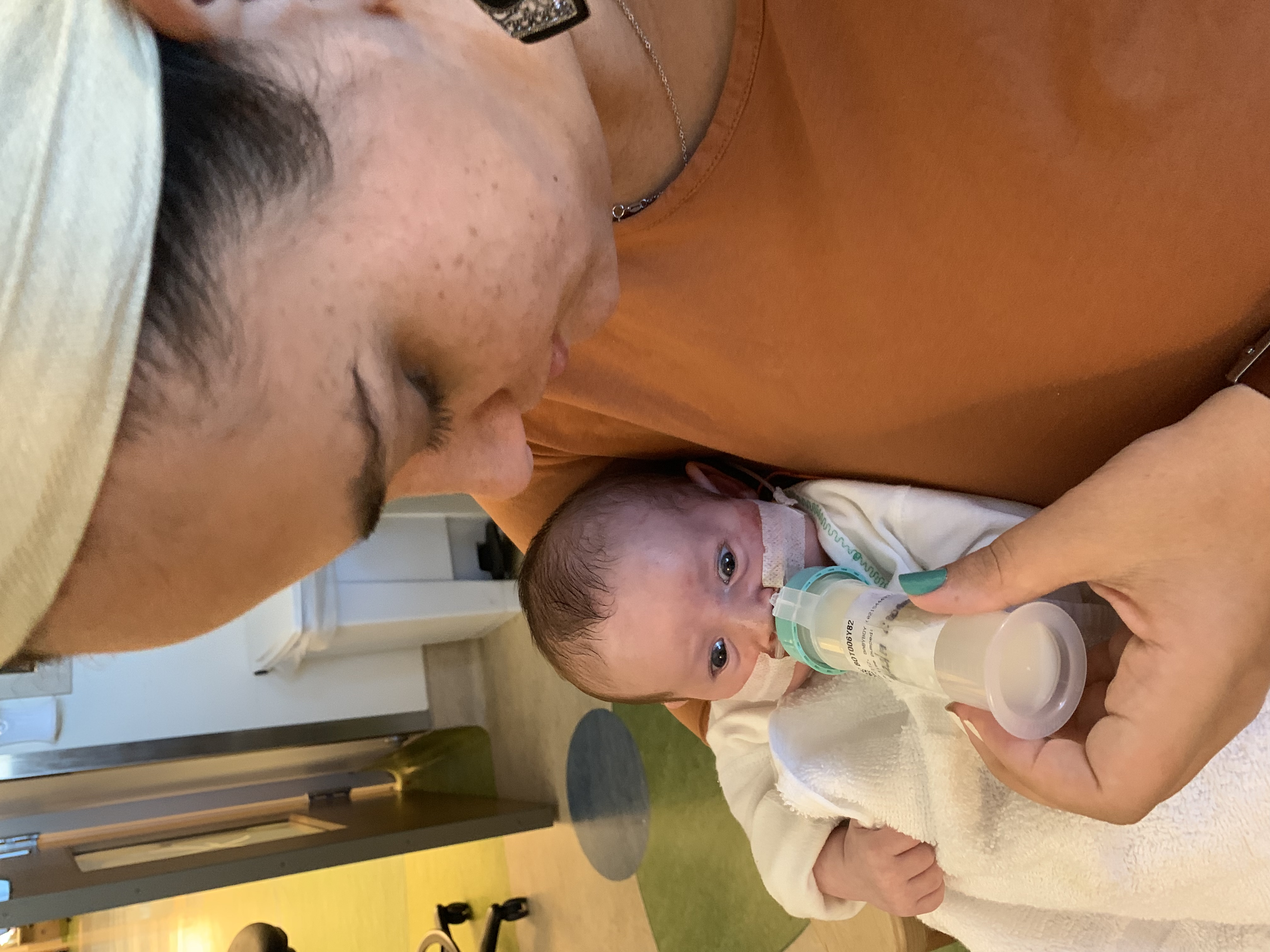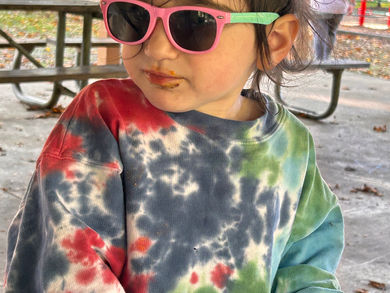Un'taneh Tokef: Catharsis or Emotional Blackmail?
- Hinda Eisen Labovitz

- Oct 7, 2024
- 7 min read
A version of this article was originally published in the Ohr Kodesh Congregation Bulletin, Divrei Kodesh, October 2024.
Each year on the High Holy Days since Ronen’s death, there is one moment in the Musaf service that makes my throat catch. I had sung it probably hundreds of times between rehearsal and services, mindlessly wandering through the words without impact. Now, I sing it over and over before our public recitation hoping that I can sensitize myself to these words, thinking that in the moment, if I just dissociate, maybe it won’t hurt so much. I composed my own musical setting, a lilting lullaby-esque minor melody that contrasts with its dark words, much in the tradition of lullabies of yore whose tuneful melodies would lull babies to sleep even as their words told of ghastly events, unrequited love, and betrayal.
un’taneh tokef kedushat hayom…
“Let us speak of the sacred power of this day—profound and awe-inspiring.”
The paragraph continues, “On [this Day of Judgment], Your sovereignty [God] is celebrated, and Your throne, from which you rule in kindness, is established with Truth.” …veteishev alav be’emet. The melody comes upon these words in the course of a legato musical phrase, as we expect.
But then I repeat these three words, in the relative major scale, recognizing God’s goodness and the blessing that comes with God’s sitting on the Throne of Truth. But my lullaby is interrupted at this word: “Truth” - emet. I am stuck on this word, and I think its meaning loudly to myself: “Truth,” as if I didn’t understand it the first time.
I chant it again higher, the latter syllable staccato, more questioning, raging. Emet?! Truth?! You, God, Rule in Truth! This is what You God, call Truth?! Echoing the words of our ancestor Abraham standing at Sodom, “Shall not the Judge of all the earth deal justly??” (RJPS, Gen. 18:25).
Before I continue on I breathe, a deep, slow, diaphragmatic breath. Resigned now, in a low, rising tetrachord to suspended musical resolution: “Truth.” Yes, we are to believe that God rules in Truth. Even if I don’t understand God’s Truth. Even if I don’t agree with it. I stand here, in this moment, not only on behalf of myself but as the sh’lichah, the emissary, of all who entrust me with this holy responsibility.
We’re only two lines, just about twenty-five seconds, into the two-page powerful piyyut (liturgical poem). Has the heavy meaning come through in that fleeting moment? Has it reached you?
Now the Liturgist uses this same word, emet, to introduce the next line, as if a definition.:
Emet hu dayan umochiach, veyodeia, va’eid…
“Truth: You, God, are Judge and Prosecutor, Expert and Witness, the One who both writes and seals [the indictments], who recounts the case and enumerates the counts. You, God, remember the forgotten. You, God, open the Book of Recollections, reading it aloud, as it is the manuscript of all humanity.”
How many rabbis have said from their pulpits that this is the “apex moment of High Holy Day Liturgy”? How many times have we been told that this is the moment we should feel the awe? Do we?
I composed my melody for Un’taneh Tokef so it neatly flows into Zavel Zilberts’s setting of Uv’shofar Gadol – “A Great Shofar is sounded, and a still, small voice is heard.” Zilberts (Belarus 1881 - New York 1949) sets the first phrase of this paragraph with a resounding, melismatic shofar call, contrasted starkly to its second phrase, taken quietly, with little vibrato.
Umal’akhim yeichafeizun, vechil ur’adah yocheizun – the angels are alarmed, seized in fear and trembling, for today is the Day of Judgment.
Today we are to be judged, and as God plays all the parts, there are no checks and balances. We appeal to our Creator; whatever God decides, is the outcome. Today. We are here, in white robes, quaking in our seats. Today is the day God decides whether this year we will meet our end.
As if the first two paragraphs didn’t give us enough to ponder, the third paragraph brings us to the concrete.
Who will live, and who will die?
Who, having fulfilled their length of days? Who, having not fulfilled their length of days?
Who by fire, and who by water? Who by sword, and who by wild beast?
Who by hunger, and who by thirst?
Who by hysteria/noise, and who by disease?
Who by strangling, and who by stoning?
Leonard Cohen, in his rendition of “Who by Fire” encourages us to continue to consider:
“And who in her lonely slip, who by barbiturate
Who in these realms of love, who by something blunt
Who by avalanche, who by powder
Who for his greed, who for his hunger
And who shall I say is calling?”
And I ask,
Who have we not prayed for because they have not yet been conceived?
Who among us now will be missing next year?
Who will die because that’s God’s plan and there’s nothing we could even say about it?
What could we do to control the outcome?
Would it help us to beat ourselves, and to feel guilty?
Would it help us to own our responsibility for solving the problem?
How much power should we actually yield to God?
Do we feel comforted by randomness in the universe?
Does it actually help us to be able to blame God?
The Liturgist answers with the certainty of a Verdi-esque Lewandowski march:
ut’shuvah ut’filah utz’dakah ma’avirin et roa hagezeirah.
Repentance, Prayer, and Righteous Acts have the power to alleviate the Evil of God’s decree.
The Liturgist suggests that we have power to change the outcome. But there is danger in suggesting we have power, or agency in our own destiny. If teshuvah, tefilah, and tzedakah have the power to alleviate the Evil of God’s decree, does this mean we have the power to change God’s mind? And if so, what are we to believe when we pray diligently, and God still says no? Are all deaths a punishment? Are all prayers answered? Is anything inherently good or evil?
I could keep asking theological questions for another several pages… but before I spin out here, let me take a step back: Why do I feel this way? What is the function of Un’taneh Tokef — or any other piece of High Holy Day liturgy for that matter? Does the liturgy put words to our fears, give us space for emotional catharsis, or does it drag us down with emotional blackmail?
Un’taneh Tokef is attributed to the Gaonic-period payyetan, Rabbi Kalonymus ben Meshullam of Mainz, one of the most famous liturgical poets of the 11th century. Its composition has been the subject of legend, here retold by Phillip Birnbaum in his 1960 Machzor:
Rabbi Amnon, a wealthy scholar of noble descent, was repeatedly but fruitlessly pressed by the rulers of Mainz to change his faith. On one occasion he evasively asked to be given three days in which to consider the matter. Upon reaching home he would neither eat nor drink; he was sad at heart and wept bitterly because he had given the impression that he might renounce his belief in one God. When at the end of the three days he failed to appear before the tyrants, he was arrested and compelled to plead guilty. As a punishment, his hands and feet were cut off. On Rosh Ha-Shanah, Rabbi Amnon was brought to the synagogue at his own request. When the Hazzan (i.e. Cantor) was about to recite the Kedushah, Rabbi Amnon asked him to pause. Dying from his wounds, Rabbi Amnon then recited the prayer-poem Un’taneh Tokef which had come to him by inspiration. No sooner had he finished the prayer than he expired. Three days later he appeared to Rabbi Kalonymus ben Meshullam of Mainz in a dream and taught him this prayer to be introduced to all congregations.
Does it change the text for you to imagine that it was first recited impromptu by a rabbi who was dying of government-sanctioned antisemitism? What about the context of the composition, an outcry from anti-Jewish oppression? “God, who shall live and who shall die?” God, who will be oppressed this year, and who will be safe from mistreatment? If even the most righteous, most respected scholars are not spared demise, how could any Repentance, Prayer, or Righteous Acts possibly help?
And does it change how it hits you, whether we sing this text in Louis Lewandowski’s forcefully haunting Requiem-style setting, or Yair Rosenblum’s commemoration of souls lost in the Yom Kippur War? Do you feel more connected to the text if you know the melody was composed and is being sung by a mother who would sacrifice everything to be able to have more time with her son? Do the tears, if they come, feel performative? or do they break you open too?
When we show up for someone in distress, one of the prescribed Hebrew phrases we use is “mishtatfim betza’arkhem” - which literally means, “we join you in your grief.” It’s different than English turns of phrase, “I’m sorry for your loss” or even sharing “condolences,” both of which are fundamentally about the deliverer of the message rather than the griever.
It is a fundamentally Jewish message, that all losses for a member of our community are losses for our whole community, and we all function in concentric circles around the locus of trauma and the primary griever. And, as is the way of life and death, someday we each take a turn in the center circle.
May we only have s’machot – may we only come together for celebrations this coming year. But when there is distress, mourning, and grief, may we each feel the embrace and support of our community.





Comments